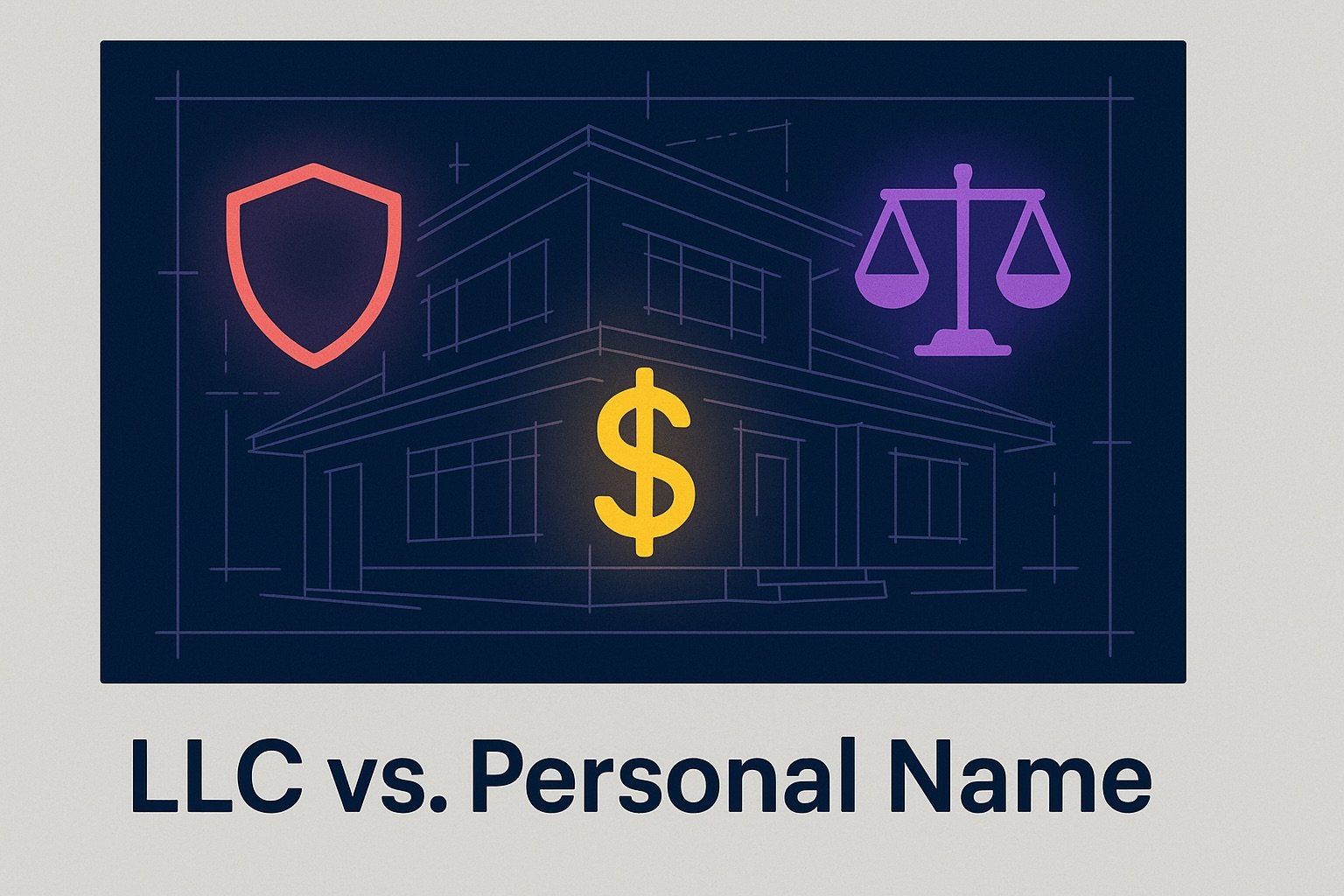The Owner's Dilemma
Choosing the Right Structure for Your Texas Short-Term Rental
Personal Name
The path of simplicity and accessibility, ideal for getting started quickly with favorable financing.
- ✅ Easy access to residential mortgages
- ✅ Lower down payments & interest rates
- ✅ No setup costs or admin fees
- ❌ Unlimited Personal Liability
Limited Liability Co. (LLC)
The path of protection and professionalism, designed to safeguard your personal wealth.
- ✅ Shields personal assets from lawsuits
- ✅ Provides privacy and a formal structure
- ✅ Essential for partners or portfolios
- ❌ Harder to Finance
The Liability Shield: A Visual Guide
The primary reason to form an LLC is to create a legal barrier between your business risks and your personal life. Here's how that works in practice.
Personal Ownership: No Protection
A business lawsuit can directly target your personal wealth. There is no separation.
Home
Car
Savings
LLC Ownership: The Corporate Veil
The LLC acts as a shield. A lawsuit can only target the assets owned by the business.
LLC SHIELD
Home
Car
Savings
Your personal assets remain safe!
The Money Maze: Financing Your STR
Your ownership choice dramatically impacts your loan options. LLCs face a higher barrier to entry, requiring more capital upfront.
Typical Down Payment Requirements
LLCs typically require commercial or DSCR loans, which come with higher down payments and interest rates compared to the conventional residential mortgages available to individuals.
The Cost of a Corporate Shield
While not prohibitive, forming and maintaining a Texas LLC involves real costs. Here's a typical breakdown.
Estimated First-Year LLC Costs
Key Texas LLC Fees
$300
One-Time State Filing Fee
$125+
Annual Registered Agent Fee (Optional)
$0
Annual Franchise Tax (if revenue < $2.47M)
The Tax Equation: Schedule C vs. E
The nature of your STR business determines your tax burden. High-service, short-stay rentals often trigger self-employment taxes.
Tax Impact on $20,000 Net Income
Reporting on Schedule C (common for STRs with average stays of 7 days or less) subjects your profit to an additional 15.3% Self-Employment Tax on top of regular income tax.
Which Path is Right for You?
Answer these questions to find the structure that best fits your specific situation as a Texas STR investor.
Preserve valuable homestead exemptions.
Isolate risk between each property efficiently.
Asset protection is your top priority.
Best for first-timers with limited capital.



